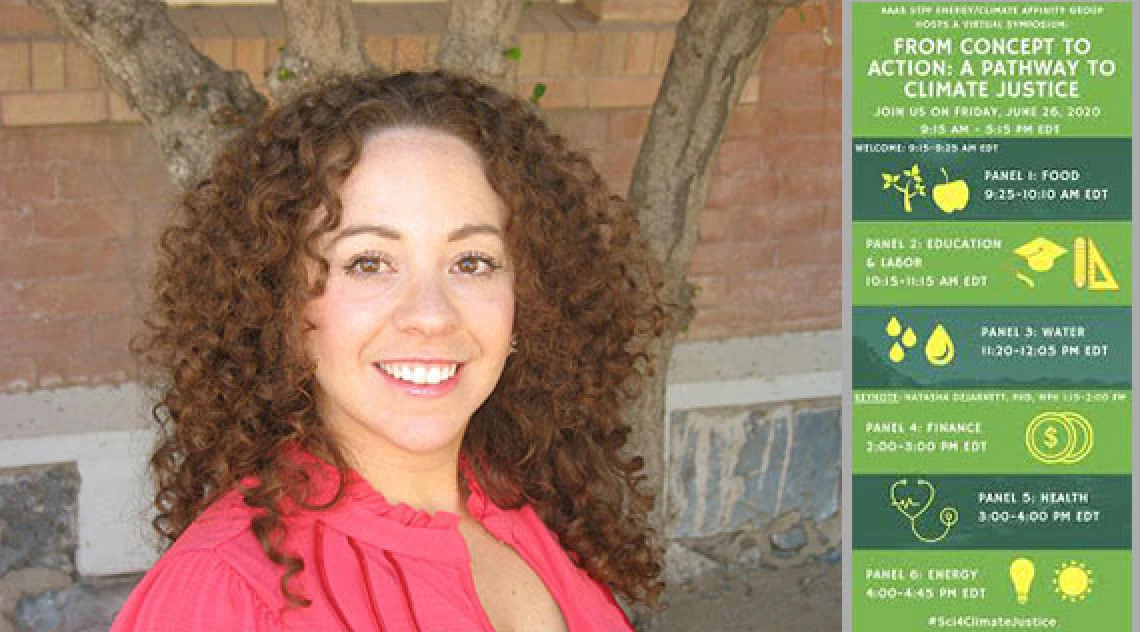Ramirez-Andreotta Speaks as a Panelist at Climate Justice Symposium

 Mónica Ramírez-Andreotta, Research Translation Director at University of Arizona Superfund Research Center (UA SRC), was invited to participate as a panelist at the virtual Climate Justice Symposium[PM-(1] on Friday, June 26, 2020. The symposium consisted of six panels that addressed various aspects of climate justice: Food, Water, Health, Labor and Education, Financing, and Energy.
Mónica Ramírez-Andreotta, Research Translation Director at University of Arizona Superfund Research Center (UA SRC), was invited to participate as a panelist at the virtual Climate Justice Symposium[PM-(1] on Friday, June 26, 2020. The symposium consisted of six panels that addressed various aspects of climate justice: Food, Water, Health, Labor and Education, Financing, and Energy.
Ramirez-Andreotta is is a community-engaged environmental health scientist investigating the fate and transport of pollutants in environmental systems, exposure pathways, phytotechnologies, and ways to improve environmental health literacy. As such, she is often found talking to and training communities and hosting community gatherings and data sharing events.
During the Food panel at the Climate Justice Symposium she discussed three topics:
(1) Community revitalization, climate change adaptations, and public health efforts may be diminished if gardens are located in environmentally compromised spaces. It's not uncommon to find residential areas neighboring mines or hazardous waste sites, and it is critical to work alongside community members to co-design and co-generate a robust environmental monitoring dataset, while informing agricultural practices and public health prevention and intervention strategies.
(2) Vegetable data from her work has revealed that in general, when compared to the U.S. Food and Drug Administration’s Market Basket Study (i.e. what could be expected from a typical U.S. grocery store), the locally grown vegetables accumulated more harmful elements.
(3) Her work has contributed to the fundamental science of environmental exposures, community science, and environmental health literacy and addressed the need for pollution prevention strategies in “hard-to-reach” Latinx/a/o communities; water and energy conservation awareness; and knowledge gaps related to climate change, chemistry, and environmental contamination as well as self-efficacy for learning and doing science and environmental action in underserved communities.

